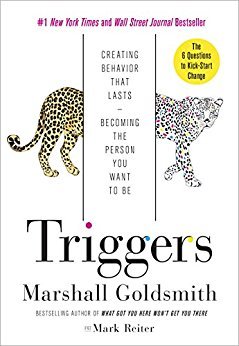More on this book
Community
Kindle Notes & Highlights
Read between
December 2, 2019 - July 2, 2020
We’re even defeated by change when it’s a matter of life and death. Consider how hard it is to break a bad habit such as smoking. It’s so daunting that, despite the threat of cancer and widespread social disapproval, two-thirds of smokers who say they’d like to quit never even try. And of those who do try, nine out of ten fail. And of those who eventually quit—namely the most motivated and disciplined people—on average they fail six times before succeeding.
Imagine how much harder it is when you let other people into the process—people whose actions are unpredictable, beyond your control—and their responses can affect your success. It’s the difference between hitting warm-up tennis balls over the net and playing a match where an opponent is rocketing the balls back at you. That’s what makes adult behavioral change so hard. If you want to be a better partner at home or a better manager at work, you not only have to change your ways, you have to get some buy-in from your partner or co-workers. Everyone around you has to recognize that you’re
...more
But what should we call the rationalizations we privately harbor when we disappoint ourselves? Mere “excuse” is somehow inadequate to describe these inner beliefs that represent how we interpret our world. An excuse explains why we fell short of expectations after the fact. Our inner beliefs trigger failure before it happens. They sabotage lasting change by canceling its possibility. We employ these beliefs as articles of faith to justify our inaction and then wish away the result. I call them belief triggers.
Earning an undergraduate degree in mathematical economics taught me about the high probability of low-probability events. We don’t plan for low-probability events because, by definition, any one of them is unlikely to occur. Who plans on a flat tire, or accident, or stalled traffic because of an overturned semi on their way to work? And yet the odds of at least one of these events occurring are high. We are all victimized, more frequently than we like, by traffic jams and flat tires and accidents. This belief triggers unrealistic expectations.
We are notoriously inaccurate in assessing ourselves. Among the more than 80,000 professionals I’ve asked to rate their performance, 70 percent believe they are in the top 10 percent of their peer group, 82 percent believe that they are in the top fifth, and 98.5 percent place themselves in the top half. If we’re successful, we tend to credit ourselves for our victories and blame our situation or other people for our losses. This belief triggers an impaired sense of objectivity. It convinces us that while other people consistently overrate themselves, our own self-assessment is fair and
...more
Rufat Mirza liked this
There is an even larger reason that explains why we don’t make the changes we want to make—greater than the high quality of our excuses or our devotion to our belief triggers. It’s called the environment.


